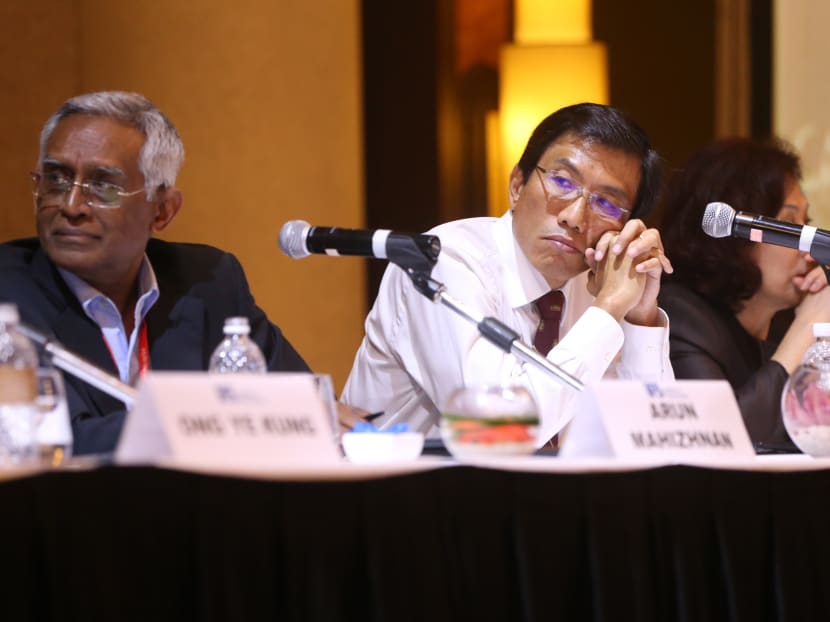Social media not a strong factor in GE2015, research shows
SINGAPORE — Political parties here conducted a better social media campaign for the Sept 11 General Election compared to the 2011 polls, but could be even more engaged, savvy and aware of who their supporters are, according to researchers at the Institute of Policy Studies (IPS).

SDP Secretary-General Chee Soon Juan at the concluding session of the Post-Election Conference 2015 held at the Orchard Hotel on Nov 4, 2015. Photo: Ooi Boon Keong
SINGAPORE — Political parties here conducted a better social media campaign for the Sept 11 General Election compared to the 2011 polls, but could be even more engaged, savvy and aware of who their supporters are, according to researchers at the Institute of Policy Studies (IPS).
Nonetheless, an online survey of 2,000 citizens aged 21 and above showed that GE2015 was not a social media election, although social media had some impact, the researchers said.
Social media users were more interested in election issues, talked more about the election with others and had a stronger belief that the Government would respond to the needs of citizens if people band together and demand change.
They participated more offline — such as attending rallies or buying campaign-related products — than those who did not use social media.
More social media users also made up their minds who to vote for after Nomination Day, compared to those who did not use social media.
Of the citizens polled by research agency YouGov from Sept 15 to 25, 79 per cent used social media.
The survey aimed to understand Singaporeans’ media usage habits and their political activities during the election.
Compared to non-social-media users, social media users were younger, consumed more mainstream media and trusted mainstream media more.
For instance, 73.7 per cent of social media users said Singapore newspapers and their websites were at least “moderately trustworthy”, compared to 64.4 per cent of non-social-media users. TV stations, newspapers and radio stations, as well as their websites, were more trusted than social networking sites, instant messaging and online discussion forums.
Mainstream media played a bigger role than social media in the election, being used and trusted more, said Dr Carol Soon of the IPS.
IPS’ Mr Tan Tarn How and his colleagues assessed the People’s Action Party to be the “all-rounder” in social media this election, with the most number of likes and starting early (from around 2013) in increasing Facebook posts, for example.
The Workers’ Party was strong on Facebook, but not on its website. The Singapore Democratic Party had the “Chee Soon Juan factor”, was policy-driven and had strong, powerful videos.
But a conference participant, independent scholar Derek da Cunha felt that with compulsory voting, a social media election is not possible here. “You cannot have an Internet election in Singapore ... when you have people including those who are completely indifferent and apolitical — and you will have a huge segment of that ... in the population — vote only because the state says they must turn up to vote.” he said.
Dr Soon, however, noted that only 8 per cent of people surveyed expressed no interest at all in political issues.
Mr Tan said the impact of the Internet is “a slow burn” and parties need to expand beyond an election-only media campaign.
The Internet mattered in the 2011 elections — not during the campaign period, but from 2009 when people started expressing anger with various policies.
“So it’s a longer-term, slower, subtle effect,” he said.






